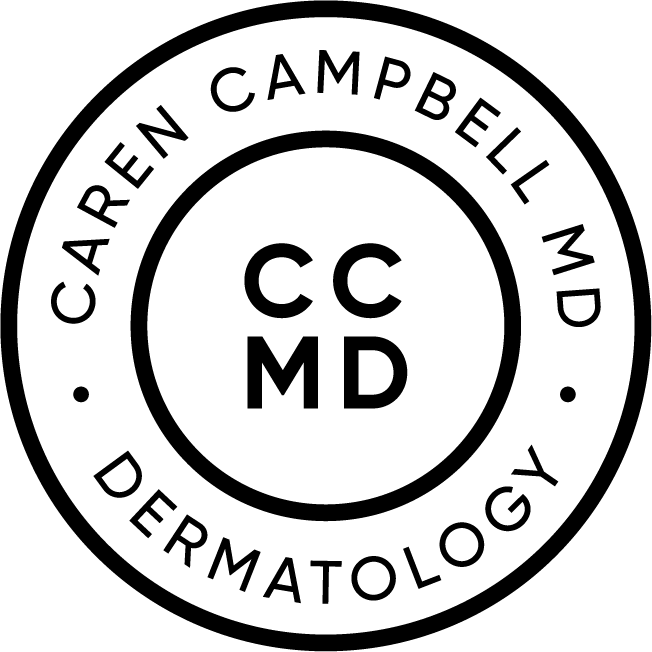Cosmetic Dermatology
The popularity of cosmetic procedures has exploded over the past few years. An annual survey by the American Society for Dermatologic Surgery shows that 70% of dermatology patients are considering a cosmetic medical procedure. Given the increasing popularity of cosmetic procedures, dermatologists are urging patients to carefully investigate the training their medical provider has received before any cosmetic dermatologic procedure.
Board-certified dermatologist have completed 4 years of undergraduate education, 4 years of medical school, and 4 years of residency. During their 4 years of residency 1 year is spent doing internal medicine, surgery, pediatrics or OB/GYN. Dr. Campbell completed 4 years of undergraduate studies at Ohio State and Colgate University, 4 years at Jefferson Medical College, 1 year of internal medicine at Albert Einstein College of Medicine and 3 years of dermatology specific training at the University of Louisville.
During Dr. Campbell's 3 years of dermatology specific training, she dedicated many days, weeks and hours to learning anatomy for surgical and cosmetic procedures. Excellent understanding of anatomy is critical to understanding medical and cosmetic procedure complications and preventing them from happening. Knowing danger zones is essential not only for the removal of skin lesions, but also for cosmetic injections, such as neuromodulators (e.g. Botox, Dysport, Xeomin) and fillers (e.g. Juvederm, Restylane, Radiesse, among others).
Dermatologists led the research to develop and put into practice most every cosmetic skin and laser procedure. Dermatologists are specifically trained and rigorously tested in their knowledge of facial anatomy and muscle innervation, proper uses of the variety of neuromodulators and fillers, the dangers and complications of these procedures, and the proper diagnosis and management of complications when they do occur, albeit rarely in experts’ hands.
In addition to injections, dermatologists are the most knowledgeable medical experts in ways to keep your skin looking its best. Our best beauty tip is to limit sun exposure. Wear sun protective clothing and regularly use broad-spectrum sunscreens with Sun Protective Factor (SPF) of 30 or higher. Protecting your skin from the sun is by far the best way to prevent skin aging and skin cancer. Sun exposure in our pasts leaves behind fine lines and wrinkles, brown, red, and scaly spots, all of which can be successfully treated. Dr. Campbell offers laser treatments, chemical peels, surgeries, prescriptions, and over-the-counter products to help improve and maintain the overall appearance of your skin.
